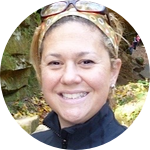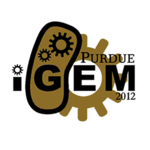About This Project
Benzene is a toxic compound found in air polluted from cigarette smoke, car exhaust, and industry. It is known to be associated with oncogenesis, specifically the development of leukemia and lymphoma. Therefore, we want to engineer the lung microbial community to absorb, degrade, and neutralize benzene along with a potential delivery device for this project. We will be periodically meeting with industry experts to determine our product’s future applications.Ask the Scientists
Join The DiscussionWhat is the context of this research?
According to the CDC, benzene is one of the top twenty most widely used industrial chemicals in the United States [1]. Benzene is a small, toxic molecule which humans are most commonly exposed to via inhalation [2]. It can be found in cigarette smoke, gasoline, automobile exhaust, and industrial emissions [1]. These sources allow for benzene to be found at fairly low levels in both outdoor and indoor air, but smokers, petrochemical laboratory workers, gas station attendants, and people in city centers are particularly at risk of exposure to higher, more dangerous levels, especially in areas of the world where benzene usage and air threshold limits are poorly regulated [3, 4].
What is the significance of this project?
As benzene is used as an intermediate whilst producing numerous daily goods (i.e rubbers, nylon fibers, etc.), factory workers will inhale this carcinogen daily[1]. Long-term effects of benzene exposure include damage to bone marrow and reduced production of healthy red and white blood cells, a vital part of the immune system[2]. Since 1986 the compound has been classified by the U.S EPA as a carcinogen[3]. Smoking-induced acute myeloid leukemia (AML, a form of cancer that starts in the bone marrow) deaths were estimated to be attributable to benzene exposure in up to 58% of cases[4], with a significant increase in lymphoma deaths in men employed in occupations where benzene was used[5]. In 2015, treatment costs for AML were $327,194; a financial burden for many families[6].
What are the goals of the project?
Our primary goal is to engineer E. coli capable of degrading benzene via expression of an enzymatic pathway that will convert benzene to pyruvate and acetyl-CoA, substances that bacteria naturally use in its energy production processes. Our next goal is to test expression of these enzymes in a diverse culture of bacteria representative of the human lung microbiome. To ensure that the project will work in real-world conditions, we will introduce these bacteria into a lung model made of human lung tissue. We also plan to design a nebulizer for future applications of the therapy which will allow for a contained aerosolization and inhalation of the probiotics. As we meet with experts, we will consider how our product needs to perform and be regulated in order to be implemented into the market.
Budget
Your donations will allow us to purchase necessary supplies and lab equipment to follow through with our experiments.
DNA is our genetic material that will be used to allow the bacteria to degrade benzene and toluene.
The restriction enzymes allow us to create new genetic constructs from our DNA to ensure that individual components of the enzymatic pathway are working correctly.
Assay materials will be used to validate that our engineered bacteria will effectively degrade benzene and toluene and the genetic material used to engineer the bacteria can be used to engineer several different species. Additionally, these assay materials will be used to ensure that our constructs will work in a realistic lung environment and not significantly alter the lung microbiome composition.
After the bacteria degrades the benzene, a gas chromatography machine will determine the amount of benzene degraded.
Endorsed by
 Project Timeline
Project Timeline
We will present our research at the International Genetically Engineered Machine (iGEM) competition, which begins on November 9.
Jun 05, 2017
Receive gBlocks from IDT
Jun 10, 2017
Project Launched
Meet the Team
Affiliates
We are a team of several bold undergraduate researchers majoring in biological engineering, biochemistry, biomedical engineering, and biology.
Affiliates
Affiliates
Purdue iGEM
The International Genetically Engineered Machine (iGEM) Foundation is dedicated to education and competition, advancement of synthetic biology, and the development of open community and collaboration. In 2012, iGEM spun out of MIT and became an independent nonprofit organization located in Cambridge, Massachusetts, USA. iGEM fosters scientific research and education by establishing and operating the Registry of Standard Biological Parts, a community collection of biological components. The organization promotes the advancement of science and education by developing an open community of students and practitioners in schools, laboratories, research institutes, and industry.
Archana Kikla
I am a junior undergraduate student majoring in Genetics and minoring in Biotechnology. This year I am the Treasurer of Purdue's iGEM team. In addition to iGEM, I am involved in a research project working with a protein that has a similar function to CRISPR. In the future I plan to earn a PhD and tailor my research towards genetic mutations.
Vi Ka Chaang
Hi! I am a junior at Purdue University and am currently majoring in Genetics and minoring in German. This is my first year working with the Purdue iGEM team, and I'm really excited to be a part of the project. After graduation, I plan to attend graduate school for a M.S in Genetic Counselling. In the future, I hope to go back to Asia and help improve genetic counselling services, and development of research guidelines.
Kathryn Atherton
I am a rising junior studying Biological Engineering with a concentration in Cellular and Biomolecular Engineering; I also am pursuing minors in Spanish and Biotechnology. I hope to earn an MD/PhD and work as a researcher in a children's hospital. I love working on this team and learning something new every day, as it gives me the chance to see what my future career may look like. Thank you for supporting the Purdue Biomakers!
Caleigh Roleck
Hello! I am a rising junior in biochemistry here at Purdue University, with minors in biotechnology and statistics. This year, I have the honor of serving as the project director for Purdue’s iGEM project. When not doing iGEM, I also conduct research on Agrobacterium-mediated genetic transformations of plants. Last year, I served as the Director of Events, and this upcoming year, I will serve as the treasurer for Purdue’s Pugwash chapter, an organization dedicated to the promotion of ethics and social responsibility in science and technology. I was awarded the Astronaut Scholarship in 2017, a scholarship the acknowledges undergraduates that express creativity and initiative in STEM research. After graduation, I hope to earn a PhD in biochemistry and then to pursue a career as a government or military scientist.
Andrew Santos
Hey there! I am an upcoming sophomore majoring in physics at Purdue University (my minors include Business French, math, and astronomy). It is such a privilege to conduct research with our iGEM team this summer. The two major areas of physics that interest me are astrophysics and biophysics, so I look forward to pursuing research pertaining to these as much as I can. This calendar year, I serve as treasurer on our Science Student Council and in the Beering Student Scholar Association. My current life goal includes earning a PhD in physics and potentially researching or becoming involved in government.
Kevin Fitzgerald
I am currently a sophomore at Purdue University pursuing a degree in biological engineering and a minor in computer science. This summer I am serving as an intern on Purdue's team competing in the 2017 International Genetically Engineered Machines Competition (iGEM). Although the field of synthetic biology interests me greatly, I have no explicit post graduation plans.
Project Backers
- 39Backers
- 100%Funded
- $4,000Total Donations
- $102.56Average Donation








